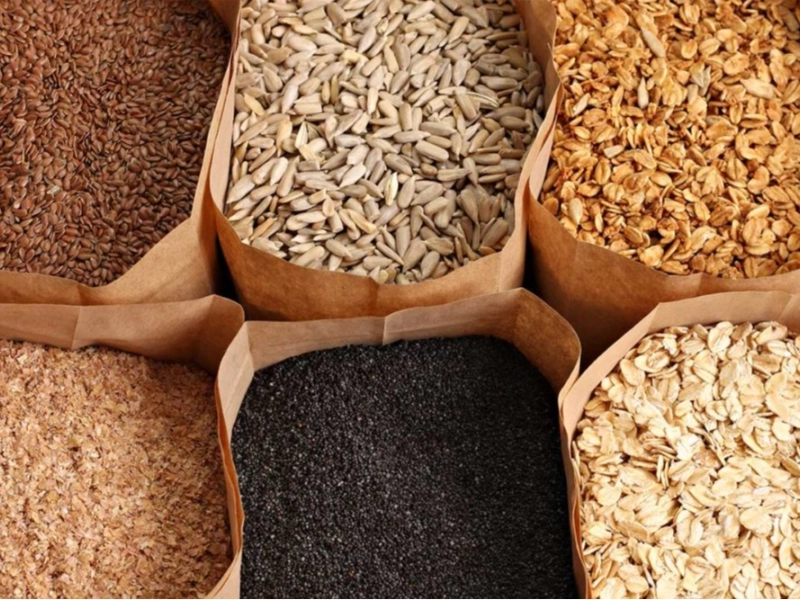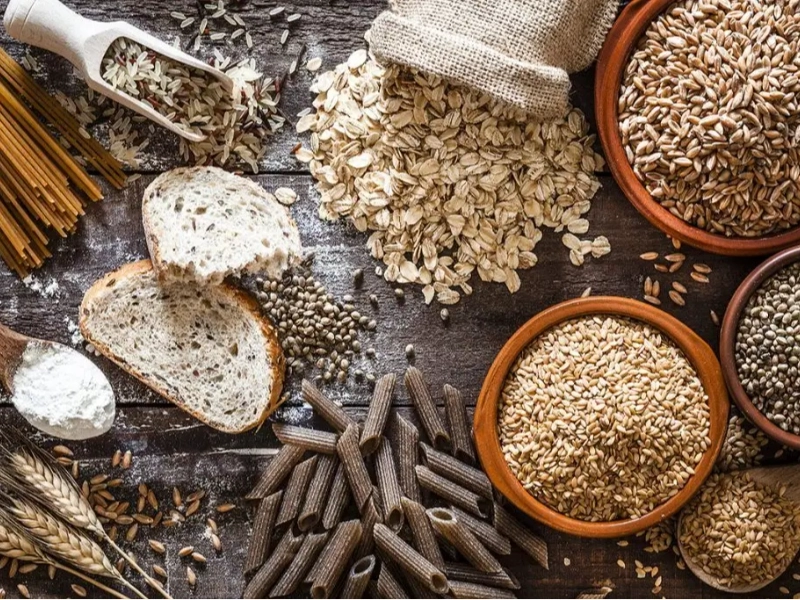Grains for Heart Disease Prevention: What the Research Says
1. Understanding Heart Disease

2. The Nutritional Benefits of Whole Grains
 Comprising the bran, germ, and endosperm, whole grains consist of the entire grain kernel. Their rich in vital minerals, vitamins, fiber, and antioxidants this makeup makes them Whole grains maintain their nutritious integrity while processed grains have been robbed of their helpful elements. Whole grains' fiber content is very crucial for heart health since it lowers cholesterol, controls blood sugar, and advances a good digestive system.
Comprising the bran, germ, and endosperm, whole grains consist of the entire grain kernel. Their rich in vital minerals, vitamins, fiber, and antioxidants this makeup makes them Whole grains maintain their nutritious integrity while processed grains have been robbed of their helpful elements. Whole grains' fiber content is very crucial for heart health since it lowers cholesterol, controls blood sugar, and advances a good digestive system.
3. Fiber and Heart Health
 The fight against heart disease depends critically on dietary fiber. Studies repeatedly have found that a high-fiber diet reduces the incidence of cardiovascular events. Particularly soluble fiber—found in oats, barley, and other legumes—helps lower LDL (bad) cholesterol. Lowering of cholesterol can help to enhance heart health and lower risk of heart disease. For best heart health, the American Heart Association advises include a range of foods high in fibers—including whole grains—into regular meals.
The fight against heart disease depends critically on dietary fiber. Studies repeatedly have found that a high-fiber diet reduces the incidence of cardiovascular events. Particularly soluble fiber—found in oats, barley, and other legumes—helps lower LDL (bad) cholesterol. Lowering of cholesterol can help to enhance heart health and lower risk of heart disease. For best heart health, the American Heart Association advises include a range of foods high in fibers—including whole grains—into regular meals.
4. Whole Grains and Cholesterol Levels
 Research show that whole grains can help to lower cholesterol. Consuming whole grains was connected, according a meta-analysis written up in the Journal of Nutrition, to lower LDL and total cholesterol levels. This effect is much enhanced by the presence of soluble fiber in whole grains. Whole grains help decrease cholesterol, therefore preventing the accumulation of plaque in the arteries and so minimizing the risk of heart disease and stroke.
Research show that whole grains can help to lower cholesterol. Consuming whole grains was connected, according a meta-analysis written up in the Journal of Nutrition, to lower LDL and total cholesterol levels. This effect is much enhanced by the presence of soluble fiber in whole grains. Whole grains help decrease cholesterol, therefore preventing the accumulation of plaque in the arteries and so minimizing the risk of heart disease and stroke.
5. The Role of Antioxidants
Additionally high in antioxidants, whole grains aid in the body's combat against oxidative stress. When free radicals and antioxidants are out of equilibrium, oxidative stress results and blood vessels suffer damage. One acknowledged factor causing heart disease is chronic inflammation. Along with phenolic components, whole grains' antioxidants—including vitamins E and B—help lower inflammation and support general cardiovascular health.
6. Research Supporting Whole Grains for Heart Disease Prevention
Many research have looked at how risk of heart disease relates to whole grain intake. Higher whole grain consumers had a noticeably decreased risk of heart disease than those who ate less, according to a sizable cohort research written up in the American Journal of Clinical Nutrition. Another study underlined that substituting whole grains for refined grains can lower the risk of coronary heart disease by 25%.
7. Recommended Whole Grains for Heart Health
Including different whole grains in your diet helps improve cardiac condition. Among the really good choices are brown rice, quinoa, whole wheat bread, oats, barley, and farro. Whether used as side dishes, soups, or salads, these grains are readily included into meals. Changing the grains not only gives your diet more diversity but also optimizes the health advantages connected with whole grain intake.
8. Practical Tips for Including Whole Grains in Your Diet
Choosing whole grains may be fun and easy. Replace refined grains first in small increments using whole grain substitutes. For instance, substitute brown rice for white rice or full grain bread for white bread. Examining food labels might also help one find items with whole grains. To build balanced meals that support heart health, try to load half of your plate with whole grains and other nutrient-dense foods such fruits and vegetables.
9. Lifestyle Changes for Heart Disease Prevention
Although including whole grains into your diet is crucial, equally crucial is to take a comprehensive approach to prevent heart disease. Key lifestyle choices are regular physical activity, weight maintenance, stress management, and avoidance of tobacco use. These modifications combined with a heart-healthy diet high in whole grains will greatly lower the risk of heart disease and enhance general well-being.
10. Summary of Grains as Allies in Heart Disease Prevention
Powerful allies in the fight against heart disease, whole grains provide many health advantages supporting cardiovascular health. A heart-healthy diet must include their high fiber content, ability to decrease cholesterol, and antioxidant qualities. Incorporating a range of whole grains into daily meals and leading a healthy lifestyle will help people to proactively avoid heart disease and improve their general condition. Emphasizing the value of whole grains helps people to choose their diets wisely therefore supporting heart health.









